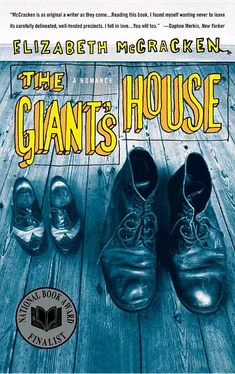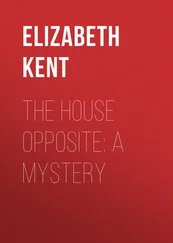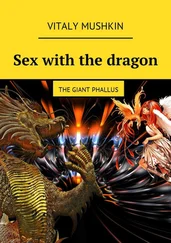That gave me two months to meet a baby before being introduced to my own, which seemed like good planning. I was strangely patient. The townspeople were the ones who waited nervously, who called each other up to say, Has it happened yet? Will it be another one, do you think?
Dorothy was born two months to the day after Ann, perfectly healthy, fat, but nothing else. I decided not to name her after anybody.
And so I had James back. I don’t mean Dotty, who grew up so much her own person, I sometimes thought she wasn’t related to anyone — plump and impetuous, a dear, longed-for foundling. Our girls played together in the yard between our houses. They knew they were somehow related. Cousin Dotty , Alice called, and sometimes, mistakenly, Cousin Ann , as if all babies born that one year were her cousins.
I told Dotty about her father. I told her about James, because he is her father, in every way. For instance: it is a scientific fact that she shares his genes. We live in his house, among his possessions. And in every way, he is the one who brought her to me, which is one of the reasons I love her — though much to my misanthropic amazement, not the only reason. He was my one, true husband and love, and he would have loved her best, like he loved Alice, only better, because Dotty is his and has his name. And everybody else told Dotty about James; everybody else told her stories about that wonderful man, her father.
The girls are gone now. The Strickland girls went to college in Boston and stayed there. I see them when they come for visits. Alice looks like photographs of the old Alice; it’s only when she speaks that Mrs. Sweatt disappears. She is certain of herself, and it gives her a weird beauty. Ann is tall enough that we once worried, though the doctors told us not to; she stopped growing in eighth grade when she was five foot nine, as if it were a childhood hobby.
And Dotty is in Chicago, twenty-five years old, older than James lived to be. Still plump, still looking like no one I’ve ever known. She comes to visit me every summer for a month; in between I rarely hear from her. My address book is crowded with her different houses. I don’t think I have the most recent. Sometimes my letters bounce back to me; other times she writes, thanking me for my news. She sends postcards, no place for a return address, saying I’m fine, I’m okay, more later . She always signs, love . She had parents who were in love with each other, and that is a blow no child can recover from. Everyone I ever knew has turned into a stack of papers.
I have James back because I live in his house. I show the tourists around. Every day I talk about him and sleep in his big bed, dream of him. That mattress is a mess. I can’t bear to replace it. It feels warm, as if he’s just gotten up, the whole bed warm wherever my skin touches it. Even in the summer, not enough people come. I wait. I read.
Sometimes I try to pull myself into my body. Sometimes I can, I can even feel my self unscrolling from my head down, to my shoulders, my chest, down to my hips, and I try to hold it. It’s a physical, definite sensation. But it’s as if my self is a stubborn window shade. The minute I loosen my grip, it goes snapping back up, leaving only the faintest wind.
I live in my head and my hands, the mouth that kissed James and the hands that held him. Plenty of space.
I take walks in town with Dotty on her summer visits. We are bold, a scandalous woman with definite proof of scandal, my definite Dotty. The tourists look at us and I see them forming certain questions. But there are some things even a tourist won’t put into words.
“I want to tell you about somebody,” I say, and they listen. They send me postcards addressed to Mrs. James Carlson Sweatt. When I write back, I sign my letters the same way. It’s the first posthumous marriage in history, a true, real marriage. Don’t doubt that.
They talk about me in this town. I have passed into legend, even though I’m still around in the flesh. Who would have thought? people say to each other. Now, when I walk past the windows of the library, into stores, along the beach, I am discussed. I know the sound; I heard it enough with James. See that woman? they say.
I am a figure they imagine knocking on their doors, to test them. They don’t know what they should do to pass the test: let me in to sit by the radiator, or send me down the sidewalk to bewitch another house. They anticipate me at any moment, thrilled with the possibilities.
My thanks to the following good readers: Karen Bender, Kermit Cole, Bruce Holbert, Max Phillips, Robert Siegel. Ann Patchett’s ability to read and reread this manuscript probably qualifies her for sainthood or psychiatric evaluation. Thanks also to Henry Dunow, Kathleen Jayes, and Susan Kamil. Thanks for various types of support and inspiration to: the MacDowell Colony; The Fine Arts Work Center in Provincetown; the staff of the Somerville Public Library; the reference staff of Van Pelt Library, University of Pennsylvania; Sam, Natalie, and Harry McCracken; and Elizabeth Perowsky.
Elizabeth McCracken is the recipient of the Harold Vursell Award from the American Academy of Arts and Letters and the PEN/Winship Award. She has received grants from the Guggenheim Foundation, the Michener Foundation, the Fine Arts Center in Provincetown, and the National Endowment for the Arts. She was also honored as one of Granta ’s 20 Best Writers Under 40.












